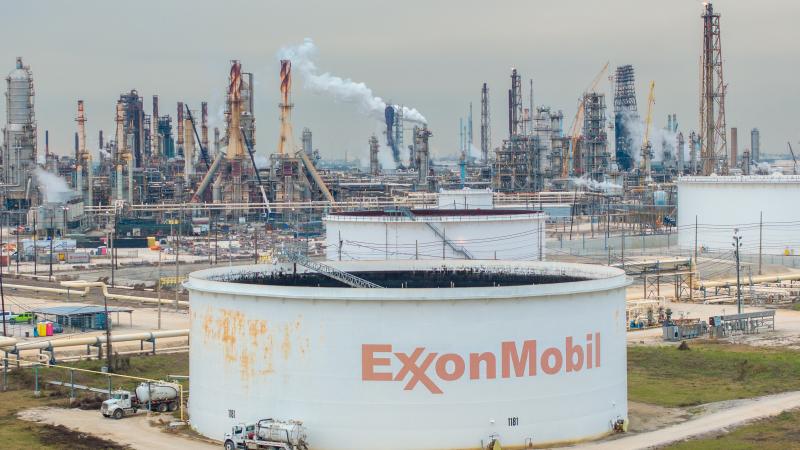US taxpayers to pony up $30M to help world's 5th-ranked economic power reduce plastic pollution
USAID/India to tap U.S. Treasury for grant to improve solid waste management and promote circular economy in India, which is expected to outpace all major economies this year with projected GDP growth of 6%-7%, 6-7 times the projected U.S. rate.
The Golden Horseshoe is a weekly designation from Just The News intended to highlight egregious examples of wasteful taxpayer spending by the government. The award is named for the horseshoe-shaped toilet seats for military airplanes that cost the Pentagon a whopping $640 each back in the 1980s.
U.S. taxpayers will be on the hook for $30 million in new cooperative grant funding to reduce plastic pollution in India, according to a notice of funding opportunity (NOFO) posted by the United States Agency for International Development MIssion in India.
"The purpose of the activity is to reduce plastic pollution, including in the marine environment, through improvements in solid waste management and advancing a plastics circular economy in selected regions of India," according to the posted synopsis for the program, Innovations for Reducing Plastics for a Cleaner Environment in India (inREPLACE).
Under the terms of the grant's cooperative agreement the winning applicant will be responsible for raising $15 million, or 50% of the $30 million award amount from outside sources.
USAID/India will be partnering with India's government to address the issue of plastic pollution by "improving plastic and solid waste management planning, infrastructure, and services" and "addressing the life cycle impacts of plastics and other materials by promoting a circular economy," according to the project's thumbnail description.
"For this three-phased NOFO, the applicant is required to leverage 50% of the award amount from other sources, external to the United States Government," the posting explains.
"Plastic pollution from mismanaged municipal solid waste (MSW) has reached a crisis level in India and around the world, filling open dumps, being openly burned, clogging city drains, entering canals, streams, and rivers, and eventually leaking into the ocean," according to the program description provided by USAID/India in the accompanying background material.
"Plastics also contribute to the climate crisis throughout their life cycle, with greenhouse gas (GHG) emissions occurring in fossil fuel extraction, refining and manufacturing processes, to end of life practices of plastic waste," the document explains. "By 2050, the global plastics sector could account for 15% of the global annual carbon budget."
With an annual GDP of $3.17, India boasts the the 5th largest economy in the world after supplanting its former imperial overlord the U.K., which dropped to 6th last year.
Although India is still considered a developing country, its economic growth is expected to outpace that of all major economies next year. According to the Economic Times, India's economy is expected to grow "at over 7% in the current fiscal year ending in March 2023." The International Monetary Fund forecasted India's GDP will grow 6.1% in 2023, compared to projected U.S. GDP growth of only 1.1%.
India's debt relative to the size of its economy is significantly lower than that of the U.S. The former's debt to GDP ratio was 89.18%, compared to the U.S. debt to GDP ratio of 128.13%.
The application deadline for the grant is Feb. 15, 2023.
USAID did not respond to a request for comment on this funding opportunity.
















